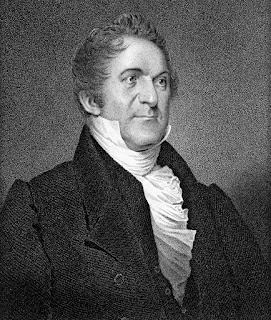William Wirt (November 8, 1772 – February 18, 1834) was an American author and statesman who is credited with turning the position of United States Attorney General into one of influence. He was the longest serving Attorney General in U.S. history. He was also the Anti-Masonic nominee for president in the 1832 election.
Wirt grew up in Maryland but pursued a legal career in Virginia, passing the Virginia bar in 1792. After holding various positions, he served as the prosecutor in Aaron Burr's trial for treason. He won election to the Virginia House of Delegates in 1808 and was appointed as a United States Attorney in 1816. The following year, President James Monroe appointed him to the position of United States Attorney General. Wirt remained in that office for the next twelve years, serving under Monroe and John Quincy Adams. He continued his law career after leaving office, representing the Cherokee in Cherokee Nation v. Georgia.
Though Wirt was himself a former Freemason, the Anti-Masonic Party nominated him for president in 1832. Wirt did not actively campaign for office and refused to publicly speak against Masonry. Nonetheless, the ticket of Wirt and Amos Ellmaker carried the state of Vermont, becoming the first third party presidential ticket to win a state. After the election, Wirt continued to practice law until his death in 1834. Wirt County, West Virginia, is named in Wirt's honor.

Comments
Post a Comment